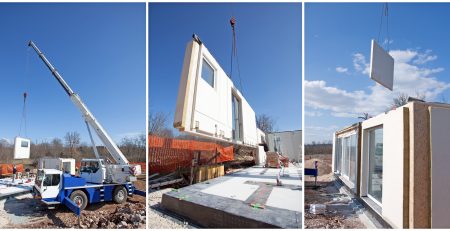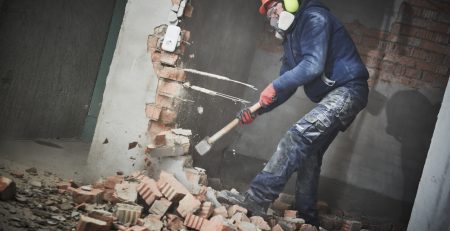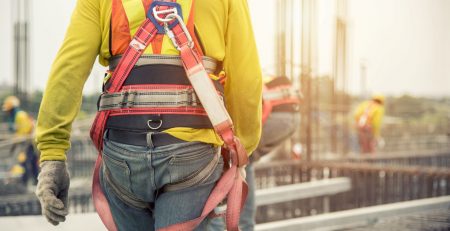Become A Fully-Fledged Builder With A Bricklaying Apprenticeship
There are plenty of reasons to choose to be a builder as your career of choice. You may loathe the idea of spending the entire days cooped up in an office and, therefore, you want a job that gives you the freedom to be outside. You may take the advice of some economists who reckon there will be a lot of opportunities for builders in the near futures. You may also take up building with the view of creating your own construction company.
Regardless of personal reasons and ambitions, one of the best ways of becoming a builder is by going through an apprenticeship. Not only with the apprenticeship improve your practical skills in the field, but the program will also impart some valuable experience that you cannot simply get in a classroom. With the above in mind, we will delve into how you can use a bricklaying apprenticeship to become a builder.
Step #1. Understand What The Bricklaying Is All About
Even before you venture into the trade, you should make an effort to understand what bricklaying is all about and the career prospects available. With regards to what this job entails, bricklayers typically build, repair, and carry out maintenance jobs on both the exterior and interior walls, chimneys, tunnel linings and other features that use bricks.
On a day-to-day basis, you will be mixing mortar, cutting bricks to size, laying bricks, levelling the rows of bricks, creating access holes for utility installations, and weatherproofing and waterproofing the walls. These activities form the bulk of the daily task for a bricklayer on any construction site. However, the trade also involves work dealing with concrete, stones, and precast panels aside from working with bricks only.
Step # 2. Know The Skills You Will Need
As you can appreciate, this is a hands-on task. As such, you must be willing to break a sweat and be physically strong to be able to handle the rigors of the job. Moreover, you should have a good grasp of English and mathematics (for an apprenticeship approach), have stellar organizational skills, be able to pay attention to details and have excellent hand-eye coordination to be able to handle the various tools used in the construction site. As Christopher Whitehead of Builders Chester who offers apprenticeships and future employment states, “Every single builder is chosen for their experience and attention to detail.”.
For level 2 bricklaying, most colleges do not require one to have any formal qualifications. Having the above qualities and personalities traits will suffice. However, should you want to advance you to Level 3, you will have to have 4 GCSEs with a minimum grade of C in maths, ICT or science, English, and Bricklaying Level 2 qualifications.
Step #3. Choosing Your Training
A lot of colleges provide bricklaying training. As such, your first best should be your local colleges. The vast majority of apprenticeship program lead to NVQ level qualification, such as NVQ Level 2 (in Bricklaying). However, apprentices also get the chance to qualify for other certification such as CSCS in Safety, which is almost monetary to have to work in most contrition sites today.
The vast majority of training programs are modular, with each module covering a certain set of skills. Examples of modules include:
- Cavity wall construction modules,
- Thin joint masonry modules,
- Construction technology modules,
- Health and safety practices, and many other modules.
It is important to note that when taking a Level 3 Apprentice program, most training institutions will require you to have an employer.
Step #4. Understand Your Apprentice Prospects
You should research your apprentice prospects. After all, you should know whether you will find a local builder to work with. If you have a friend or family who works as a bricklayer, ask them whether they know any company that can hire you are an apprentice.
Moreover, when you get a company, you should ensure that it can work with your college. That being said, ensure that your college has systems in place to make sure your hone your, protect you, and much more.
The Life Of A Brick Layer
Bricklaying is a hard job and requires dedication to your craft on a daily basis. This is especially important for apprentices as they must constantly pay attention, learning as much as possible. Keep in mind that the modern construction environment is not very conducive to learning. Speed is the most critical attribute that bricklayers should have in today’s construction sites. However, the demand for speed does not give apprentices ample time to hone their craft, by taking caution and being careful and deliberate in producing high-quality workmanship. Jonathan Craig, owner of Wirral Builders who offer an apprenticeship scheme shares “We bring a painstaking attention to detail to every aspect of our job because we know that you deserve our very best work.”
And while health and safety conditions on construction sites have improved tremendously over the past decade or two, the working in a construction site still means working in cold conditions, working whilst being rained on, having to deal with a sore hand, and dealing with muscle aches at the end of the day.
Aside from understanding what being a bricklayer is all about, you should research the career progression possible after taking the apprenticeship path.












